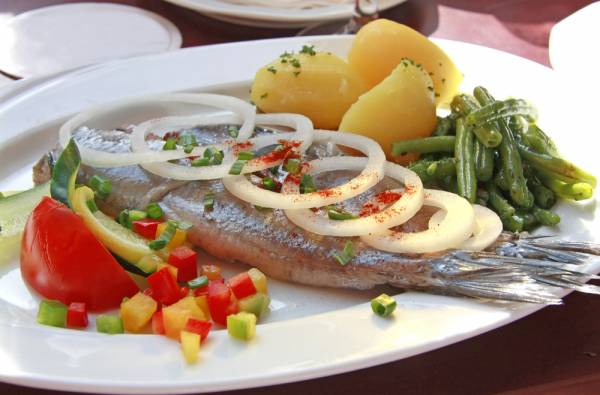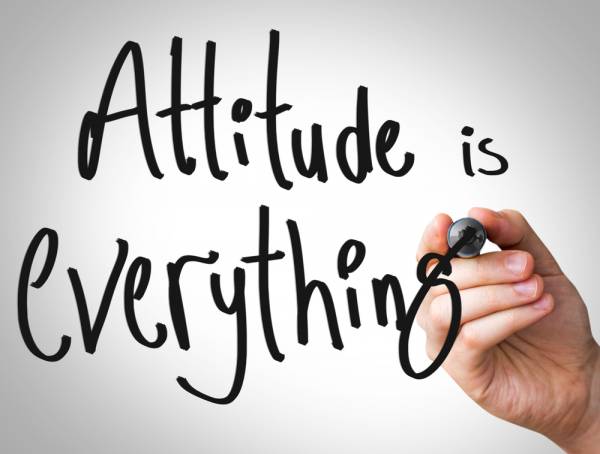Let’s face it. Injuries suck. They get in the way of your training, your competitions, and quite frankly your day-to-day life. They can be physically and mentally frustrating, and usually take longer to heal than you are willing to give them.
So, why is your injury just not getting better? It could be for reasons you never thought of.
Let’s face it. Injuries suck. They get in the way of your training, your competitions, and quite frankly your day-to-day life. They can be physically and mentally frustrating, and usually take longer to heal than you are willing to give them.
So, why is your injury just not getting better? It could be for reasons you never thought of.
You Don’t Train
Most of you reading this are athletes and exercisers who train regularly, so you don’t necessarily need to hear this point. But, I am going to make it anyway because it is an important one: even if you are injured, you need to keep training.
When injured, it is absolutely true that you may need to rest from certain activities or decrease the intensity or frequency of your training. But you don’t (and shouldn’t) cut exercise out entirely.
You need to continue training so you can rehab your current injury and prevent any future injuries from happening, while at the same time keeping yourself on target for your goals.
Now, what your training looks like may change. It might include more mobility and stability work, as well as some new or different strengthening exercises.
There may be some modifications of certain exercises, additions of others, and even a few deletions. Your warm up may evolve to be more specific to your particular injury. Your recovery protocol will become more important.
Just remember, whether your injury is from a trauma, muscle imbalance, or overuse, training will help speed up your recovery time. When done properly, training throughout your rehabilitation will address any imbalances, strengthen what’s weak, and get you back to top form.
You Don’t Take Time for Recovery and Regeneration
I’m not going to go into a lot of detail about this one, as there are a number of awesome articles here on Breaking Muscle all about recovery and regeneration.
Self-myofascial release, stretching, adequate rest, and contrast showers – these are all things you know you should be doing and are crucial for your recovery.
Don’t have time for them? Well, then I’m going to be blunt: don’t complain it still hurts.
Your Nutrition Is Less-Than-Optimal
Nutrition is actually a key component of injury rehabilitation that is often overlooked by athletes and health care professionals alike.
In fact, a well-designed nutrition plan can speed up the healing process, while the reverse is also true. Meaning, bad dietary habits can actually impede your recovery.
You Eat Too Little
If due to injury you are training at a reduced frequency or intensity, you will need to eat less food than you normally would during training and competition.
However, the mistake many athletes make is that they then decrease their overall caloric intake by too much, eating what they normally would during times of sedentary behavior or inactivity.
The problem with this is that during the acute phase of injury recovery, the body’s energy needs actually increase.
Basal metabolic rate (BMR) has been shown to increase by 15-50% depending on the severity of the injury. This means that your body needs the energy from food to heal, and if you are not getting enough fuel, the healing process will be delayed.
You Need The Right Types of Fat
Studies show that a diet high in trans-fats, saturated fat, and omega-6-rich vegetable oils will worsen inflammation, whereas monounsaturated and omega-3 fats have an anti-inflammatory effect.
The bonus? These anti-inflammatory fats don’t actually interfere with the repair of our tissues (remember, inflammation is a good thing and is critical for injury) and instead simply help with healing and collagen deposition.

You Don’t Eat Enough Protein
When you are injured your body requires a consistently high protein intake. If you aren’t eating enough, your muscle recovery will stall, and you won’t see as fast of results as you could see.
For a quick reference, Dr. John Berardi of Precision Nutrition recommends at minimum one gram of protein per pound of body weight every day in order to best tackle your injury.
You’re Missing Important Vitamins and Minerals
Vitamins A, B, C, and D, as well as calcium, copper, iron, magnesium, manganese, and zinc support tissue regeneration and repair as they help to support early inflammation, reverse post-injury immune suppression, assist in collagen formation, strengthen connective tissue, as well as support protein synthesis.
This means if you eat a lot of processed food and don’t have a balanced diet with a good mix of colorful fruit and vegetables and dairy and meat products, you might be missing out on these key micronutrients.
You Regularly Have Empties to Drop Off at the Liquor Store
This is an important one to understand. Sometimes people enjoy having a few drinks while injured, as the effects of the alcohol actually numb the pain.
Now, this altered perception of pain might seem like a good thing, but when you are injured the pain is there for a reason. Masking the pain means you are masking your ability to protect yourself from further injury.
And that is not the only problem with alcohol and your recovery. Alcohol impedes muscle development and recovery as it impairs muscle growth, dehydrates the body, depletes energy, and reduces the body’s ability to produce ATP.
Furthermore, it negatively affects the body’s sleep patterns (our next topic to cover). In simple terms, alcohol negatively affects muscle recovery, slowing down the healing process and ensuring your injury stays around much longer than necessary.
You Don’t Sleep Enough
Sleep is one of your body’s best defenses and plays an important role in the regenerative process following injury.
It is during sleep that your body secretes important hormones that are essential for a strong immune system, increased muscle mass, bone strength, and energy. Missing out on this critical time can lead to muscle atrophy, as well as the loss of ability to efficiently build and repair your muscles.
So make sure you get enough zzzzs, and ensure you aren’t missing out on this critical recovery time.

You’re Trying to Go It Alone
Googling your symptoms and doing whatever the first website says isn’t going to get you better.
You need to work with a team of professionals – a team who can diagnose and treat your injury, while guiding and coaching you on the proper exercises, movements, and steps to get you back to healthy.
You see, injuries can be tricky little things. They can fool you. Your knee hurts, so it must be coming from your knee, right?
Well, unfortunately it isn’t quite that easy, and often when you have pain in one place, it’s due to a dysfunction somewhere else.
This is why you need a professional who can assess your injury and your movement, determine what the weak link is, and help you to fix it. Otherwise, you are just going to keep rolling and icing your knee while the cause of the injury remains problematic.
Not only will this approach lead to an extended healing process (which could become chronic), but it also makes you susceptible to re-injury in the future.
The sooner you work with a professional and start the rehab process, the sooner you will get better and back to full function.
You Have a Poor Attitude
This may seem like a minor detail, but attitude really is everything. You have to be more than just willing to get better. You have to want to get better. Be eager to get better.
Be prepared to do whatever your physical therapist or coach asks you to do. Be committed to your rehab exercises, take part in your therapy, and ensure you are eating well, sleeping, and doing lots of recovery work.

You need to accept the fact you are injured and commit yourself to doing something about it.
This may seem simple enough, but surprisingly, it isn’t. I’ve seen it happen before. A client who doesn’t want to play an active role in his or her own rehab.
He or she wants to simply be fixed and doesn’t want to put in the work.
And sure, if he or she sees a physical therapist regularly, the injury likely will get better, but it will take much longer. And chances are, since the client is not strengthening and putting in the time to recover properly, he or she will get injured again.
So, make sure to have a positive outlook. Like I said at the beginning, injuries suck. But feeling sorry for yourself isn’t going to help you get better. A positive attitude really does go a long way for your recovery.
References:
1. Dattilo, M., et al., “Paradoxical sleep deprivation induces muscle atrophy.” Muscle & Nerve 45 (2012): 431-433.
2. Berardi. J., Nutrition for Injury Recovery: Part 2. Precision Nutrition. Accessed August 14, 2014.
3. Berardi, J., Nutrition for Injury Recovery: Part 3. Precision Nutrition. Accessed August 14, 20
4. Berardi, J., Nutrition for Injury Recovery: Part 4. Precision Nutrition. Accessed August 14, 2014.
5. Berardi, J., Nutrition for Injury Recovery: Part 5. Precision Nutrition. Accessed August 14, 2014.
6. Lauling, K.L., et al., “Acute Alcohol Exposure Impairs Fracture Healing and Deregulates B-Catenin Signaling in the Fracture Callus.” Alcoholism: Clinical and Experimental Research 36 (2012): 2095-2103.
Photos courtesy of Shutterstock.






